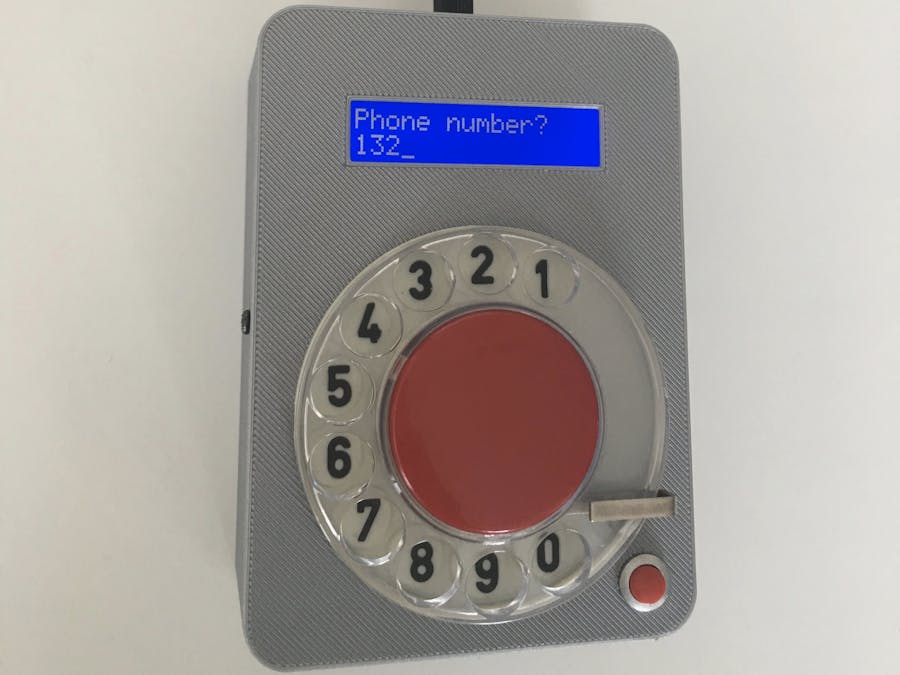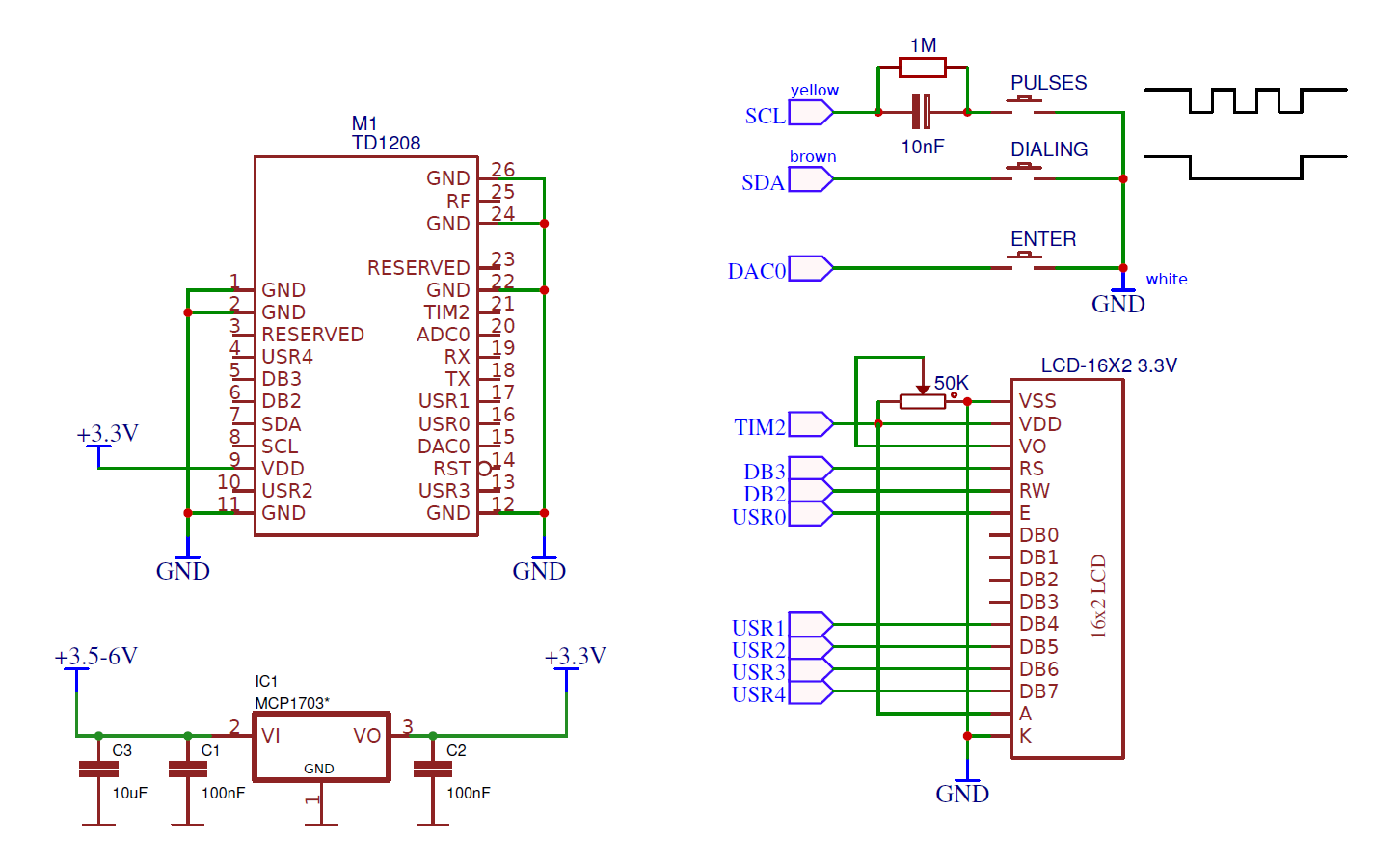Hallo!
I am really fascinated with old electro-mechanical dials from old phones. So I have got crazy idea to combine such dial with LCD and more interestingly with Sigfox connectivity (low power IoT network).
Function descriptionFunction of device is pretty simple. Device is meant to be powered by 3 or 4x AA batteries therefore code is optimized for maximal power efficiency. Display is automatically turned off after 30s of inactivity.
User is asked for PIN number. Currently is PIN code hard-coded, but it is not problem to add functionality to change code by user or remotely over network (preferred).
User is asked to enter phone number:
In very last step, user is asked to enter "action code".
Each action is confirmed by "enter" a button.
Phone number and action code are transferred via Sigfox network to an application which initiate SMS/CALL with prepared text based on action code. Device can be simplified to send just action codes to trigger various actions, eg. 12 - watering of garden, 123-turn of electricity, 999-launch ballistic missiles, etc.
It could be very crude remote control.
EnclosureMy prototyping usually starts with enclosure so I draw simple enclosure in ThinkerCad and printed on my 3D printer. I know that is not probably pretty usual to start with enclosure but It motivates me to actually finish the product.
The heart of device is TD1208 Sigfox Module which comes with possibility to write your own firmware in relatively easy manner. I have used my own TD1208 break out PCB (ioter.io) but original TD1208 EVB could be used as well.
Display 16x2 (HD44780) has to be 3.3V type or you have to use negative voltage source for VO pin of display in case of 5V type. In other cases text will be barely visible. I made in my case charge pump from 555 (plenty of schematics available online)
Display power is managed over GPIO pin TIM2 so in standby power consumption is about 4-5uA, in active mode about 7mA, during transmitting about 55mA.
Dialer used is probably Siemens type with four wires. I have managed found one which return pulses according number (n+1) and one which is closed during "pulsing". Adjustment of code will maybe necessary depending on your dialer.
Because pulses from mechanical contacts are very noisy there are needed some filtering. I have solved this problem by simple capacitor in series with bleed out resistor. That simple solution works 100%.
For handling of incoming data from device I am using Losant IoT platform. Function of app is very simple and on internet are available many guides and examples so I will describe just general concept. There are two major functions
- parsing of Sigfox payload
- calling external http service providing SMS or Text to speech calls like Twilio or many others.
.


















Comments
Please log in or sign up to comment.